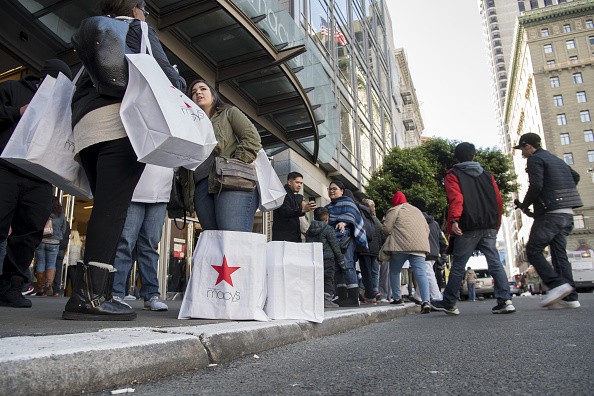Earlier this month, Alibaba founder and executive chairman Jack Ma made a promise to create one million jobs in the U.S. during a meeting with President-elect Donald Trump.
Michael Evans, Alibaba president, said that the template for this effort is Alibaba's dealings with 10 million small businesses in China. The idea is to link small businesses in the U.S. with Chinese online buyers.
"We understand the power of connecting small businesses to consumers--in this case, new consumers for their products--and the leverage that gives the small business to hire more people," Evans said. "For the next five years, it's going to be a business priority and focus in the U.S."
But some experts see this as simply a move to expand Alibaba's revenue sources amid the slow growth of China's economy. Ma had previously said that he was aiming to get more than half of their sales from overseas market by 2025 and he has also been talking of expanding in the U.S.
Data compiled by Bloomberg showed that Alibaba gained 26 percent from sales in overseas market in the last quarter. As the company is about to release its third quarter earnings this week, Bloomberg predicted its sales to increase 45 percent from last year to 50.1 billion yuan, which include the sales in the Singles' Day event in November.
Although, the company's growth has slowed in the past year, Alibaba's shares still beat expectations at the New York Stock Exchange this year. On Monday, Jan. 23, the company's shares climbed 1.2 percent to $97.24.
According to Bloomberg economist surveys, Alibaba is facing a slowing economy at home, as China's economy is expected to drop to 6.4 percent despite a growth of 6.7 percent in its gross domestic product last year.
The Chinese e-commerce giant has diversified its revenue sourcing. It has persuaded U.S. mega-retailers Macy's Inc and Costco Wholesale Corp to open online shops, signed a $2.6-billion privatization deal with Intime Retail Group Co, and intensified its efforts to reach out to small- and medium-sized enterprises.
The report said that nearly 650,000 U.S. companies are already registered on Alibaba.com, and more than 7,000 brands in its platforms, which include Tmall Global.
Evans said they will send out recruiters across the U.S. to attract more businesses, telling them of the potential in cross-border retail e-commerce in China, which is expected to reach 3.6 trillion yuan by 2020.
"Today, these people are selling products in their local communities," Evans said. "The key is to connect them to new sources of demand--consumer demand in China and Asia."
During his meeting with Trump, Ma said that they are targeting the Midwest in their U.S. expansion and also aiming for a supply of wine and fruit. As China shifts toward a consumer society, the demand of the middle class for high-quality baby formula, organic beauty products and Alaskan salmon are expected to increase.
Some people, however, doubt if it would convince regular shop owners to become global traders, considering that with the influx of new business in Alibaba platforms, it would be difficult to stand out from the rest.
In addition to this, Alibaba has to consider the relations between the U.S. and China, which may worsen as Trump had pledged to impose high tariffs on goods from China, whom he accused of stealing American jobs.
Further, the U.S. government has also added Alibaba again to its blacklist for allegedly selling fake goods.
Mark Tanner, founder of China Skinny, a Shanghai-based consultancy, also pointed out that small businesses may not also afford the cost of marketing to Chinese consumers.
"A million full-time paying jobs in the U.S. would be quite difficult," Tanner said. "To be really successful in China, you need to be on the ground, be responsive in the middle of the night U.S. time and also speak Chinese to really understand the customers."
But Evans said that Alibaba can solve the problem through Taobao Partners, which can provide assistance to U.S. companies, with its translation and customer-service agencies and in dealing with corporate registrations, foreign exchange, product designs and returns.
These agencies are third-party companies with offices in different time zones, Evans added.
"This is China. There's no problem you can't throw a thousand bodies at," said Michael Zakkour, the Asia Pacific practice vice president of Tompkins International China who helps connect Western businesses with Taobao Partners. He estimates there are as many as 6,000 of those.
"As wave after wave of new brands come and start selling, those partners will easily add more capacity or a whole slew of new ones will pop up."
Evans added that the company will also use Cainiao Smart Logistics Network Ltd. to help sellers sell their products.



























